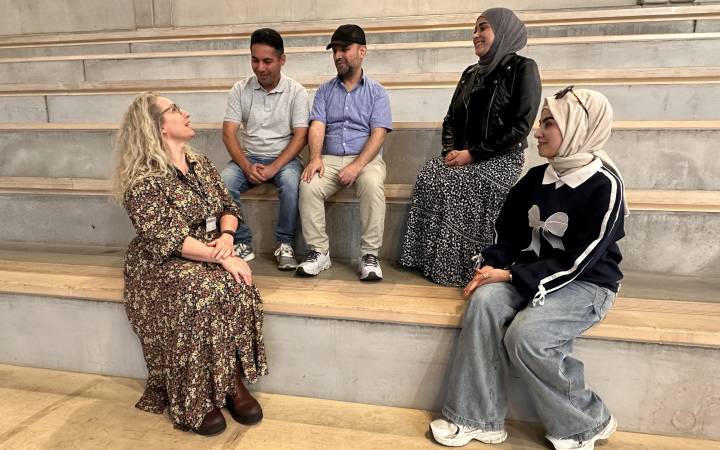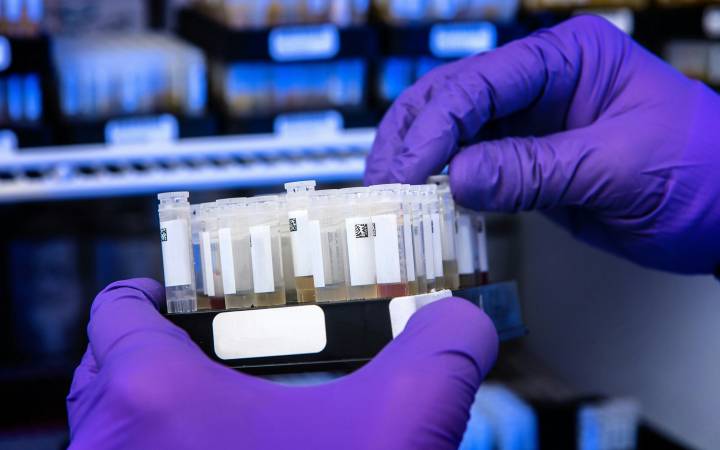Teaching students find the formula to make maths fun
Posted Thursday 1 March 2012
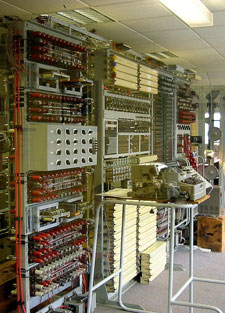 Ask primary school pupils what their favourite subject is and it's safe to assume that for most it won't be maths. That could all be about to change, however, thanks to the ingenuity of a group of teacher training students from Kingston University.
Ask primary school pupils what their favourite subject is and it's safe to assume that for most it won't be maths. That could all be about to change, however, thanks to the ingenuity of a group of teacher training students from Kingston University.
Taking a look at real life maths in action as part of their elected mathematics module, a visit to Bletchley Park - famous for British codebreaking activities during World War II - has sparked a collaboration with the potential to inspire more children to see the fun side of the subject.
"While we were visiting Bletchley we asked about the types of teaching materials the Park had for Key Stage 2 educational visits," teaching student Alastair Crow explained. "They told us they currently didn't have anything suitable for that age group and that most of their resources were more history focused."
That discovery provided the perfect impetus for the teaching students to put what they had learned about different types of code, including Morse and Caesar Cipher, into action. Soon they were hard at work developing interesting maths materials for pupils at that level.
Although the teaching materials being produced for Bletchley Park are still in the initial stages, the students are taking their work seriously. 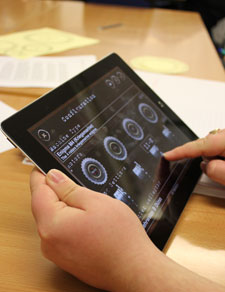 "It's important to look at the national curriculum for this age range and see which things might be relevant to the work that we've been doing at Bletchley," trainee teacher Josie Murray said. "There may not be anything in the curriculum that directly mentions codes, so instead we might need to consider other topics that can be applied. It's all about trying to find something that sparks children's interest."
"It's important to look at the national curriculum for this age range and see which things might be relevant to the work that we've been doing at Bletchley," trainee teacher Josie Murray said. "There may not be anything in the curriculum that directly mentions codes, so instead we might need to consider other topics that can be applied. It's all about trying to find something that sparks children's interest."
The students had been incredibly proactive and even given up their own time to try to come up with something suitable, senior lecturer Jean Knapp said. "The additional lessons and features of this module give the students an advantage as maths specialists and their knowledge of real-life, practical maths will be a catalyst for getting their own pupils excited about the subject once they are qualified teachers," she added.
With the help of the Kingston students, the team of volunteers at Bletchley Park is hoping to attract more visitors intrigued in its mathematical importance as well as its historical significance. Volunteer Thomas Davenport said he had been impressed by the professionalism of the Kingston students. "Not only did they get on with the task in hand, they were always looking to what the next step was, thinking independently and using their initiative," he said.
The collaboration with Bletchley Park has coincided with its profile being raised thanks to a £550,000 donation from internet giant Google. It has recognised the Park's codebreaking machines as part of the history of modern computing and the money, along with Lottery funding, has been earmarked to help restore buildings and attract more visitors, educating a new generation.
"It's wonderful to have the opportunity to develop our own teaching skills while helping Bletchley Park at the same time," student Alistair Smith said. "We really feel like we're doing something worthwhile."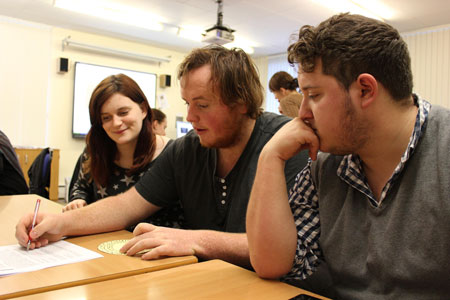
Find out more about studying primary teaching at Kingston University
Contact us
General enquiries:
Journalists only:
- Communications team
Tel: +44 (0)20 8417 3034
Email us
